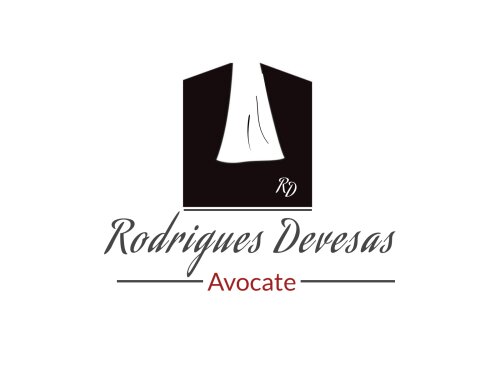Best Drunk Driving Lawyers in Nantes
Share your needs with us, get contacted by law firms.
Free. Takes 2 min.
List of the best lawyers in Nantes, France
About Drunk Driving Law in Nantes, France
Drunk driving, legally referred to as "conduite en état d'ivresse" in France, is a serious offense that poses significant safety risks. In Nantes, as in the rest of France, any driver found to have a blood alcohol concentration (BAC) above the legal limit of 0.05%, or 0.02% for novice drivers (those with licenses for less than three years), may face legal repercussions. The law is designed to deter individuals from driving under the influence and to promote road safety.
Why You May Need a Lawyer
There are various situations where legal assistance may be necessary for those charged with drunk driving in Nantes. These include cases where an individual disputes the results of a breathalyzer test, circumstances involving accidents or injuries, dealing with insurance claims, and handling the complexities of court procedure. Having an experienced attorney can help in mitigating penalties, understanding legal rights, and possibly reducing charges.
Local Laws Overview
Nantes, as part of France, follows national laws regarding drunk driving. Key aspects include:
- Strict penalties, including fines, license suspension, and imprisonment, depending on the severity of the offense.
- Enhanced penalties for high BAC levels, repeat offenders, and cases that result in injury or death.
- Mandatory participation in awareness courses for offenders to understand the dangers of drunk driving.
- Legal requirements for breathalyzer usage if requested by law enforcement during traffic stops.
Frequently Asked Questions
What is the legal BAC limit in France?
The legal BAC limit is 0.05% for experienced drivers and 0.02% for novice drivers.
What are the penalties for drunk driving?
Penalties may include fines up to 4,500 euros, license suspension, requirement to attend safety courses, and even imprisonment for severe cases.
Can I refuse a breathalyzer test?
Refusing a breathalyzer test can result in automatic penalties and is considered an admission of guilt, leading to harsher consequences.
What happens if I am caught drunk driving as a tourist?
Tourists face the same legal repercussions as residents, and additional diplomatic channels may be involved for cross-border legal processes.
How can a lawyer assist in a drunk driving case?
A lawyer can provide legal representation, challenge evidence, negotiate penalties, and guide clients through legal procedures.
Can a conviction be appealed?
Yes, with the help of a lawyer, it is possible to appeal a conviction if there are valid grounds to challenge the court's decision.
What are the insurance implications of a drunk driving charge?
Drunk driving charges can lead to increased insurance premiums and may affect the ability to claim coverage in accidents.
Are there increased penalties for accidents involving drunk drivers?
Yes, if an accident occurs resulting in injury or death, the penalties are considerably more severe.
How long does a conviction stay on record?
Typically, a conviction stays on record for ten years, impacting future legal and residency applications.
Where can I find information on rehabilitation programs?
Local governmental or non-profit organizations provide information on mandatory and voluntary rehabilitation programs for convicted individuals.
Additional Resources
For assistance and further information on drunk driving laws, the following resources may be helpful:
- La Préfecture de la Loire-Atlantique: The local prefecture office can provide specific information on legal procedures and penalties.
- Comité National de la Sécurité Routière: Offers resources and information about road safety regulations in France.
- Local Legal Aid Services: Available for individuals seeking legal representation or advice at reduced rates.
- Auto-école Services: Some driving schools offer courses as part of legal sentencing for drunk driving offenses.
Next Steps
If you need legal assistance in a drunk driving case, consider the following steps:
- Contact a local lawyer specializing in traffic law to discuss your case.
- Gather all relevant documents, including police reports and breathalyzer test results.
- Attend any mandatory court hearings or meetings with your lawyer.
- Explore rehabilitation programs if legally required or recommended.
- Stay informed about your legal rights and ongoing legal processes.
Lawzana helps you find the best lawyers and law firms in Nantes through a curated and pre-screened list of qualified legal professionals. Our platform offers rankings and detailed profiles of attorneys and law firms, allowing you to compare based on practice areas, including Drunk Driving, experience, and client feedback.
Each profile includes a description of the firm's areas of practice, client reviews, team members and partners, year of establishment, spoken languages, office locations, contact information, social media presence, and any published articles or resources. Most firms on our platform speak English and are experienced in both local and international legal matters.
Get a quote from top-rated law firms in Nantes, France — quickly, securely, and without unnecessary hassle.
Disclaimer:
The information provided on this page is for general informational purposes only and does not constitute legal advice. While we strive to ensure the accuracy and relevance of the content, legal information may change over time, and interpretations of the law can vary. You should always consult with a qualified legal professional for advice specific to your situation.
We disclaim all liability for actions taken or not taken based on the content of this page. If you believe any information is incorrect or outdated, please contact us, and we will review and update it where appropriate.








